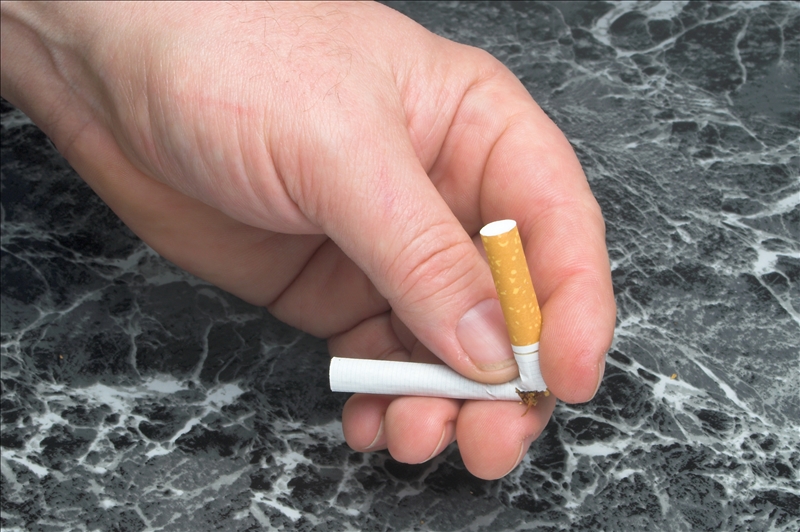Back in the mid-60s, more than 40 percent of the adult population in this country smoked cigarettes. Forty years later, it’s down to 18 percent. That’s great news considering all we know about the downside of smoking.
Smoking risks
- It’s the #1 cause of preventable death in the United States
- It causes heart disease, stroke, lung disease, osteoporosis and cataracts
- It causes changes in the brain
If you’re a smoker, the older you are the more likely you’ve been smoking for years — decades even — which means you’re more likely to have at least one smoking-related health problem.
You may have tried to quit in the past, maybe more than once, and you may be thinking it doesn’t really matter if you smoke now that you’re older.
It does matter because when you quit, good things begin to happen almost immediately.
Watch this short video from the National Institutes of Health.
What Happens When You Quit
This information is from the Partnership for a Tobacco-Free Maine.
- Immediately after quitting smoking, heart rate and blood pressure, which is abnormally high while smoking, begin to return to normal.
- Within a few hours, the level of carbon monoxide, which reduces the blood’s ability to carry oxygen, begins to decline.
- Within a few weeks, circulation improves, you don’t produce as much phlegm, and you don’t cough or wheeze as often.
- The workload on the heart is decreased and cardiac function is improved.
- Food tastes better, and your sense of smell returns to normal.
- Everyday activities no longer leave you out of breath.
- Within several months of quitting, you experience significant improvements in lung function.
- Conditions such as cataracts, macular degeneration, thyroid conditions, hearing loss, dementia, and osteoporosis are positively affected.
- Nerve endings in the mouth and nose begin to regenerate, improving taste and smell.
- Medications may work better, enabling some to be taken in decreased doses.
Wouldn’t you like to feel that good again?
If the answer is yes and you’ve decided to quit, we’ve got several tips that have helped other people. Some of them come from the Partnership for a Tobacco-Free Maine and others from the National Cancer Institute. They both say it’s important to begin with a well thought out plan.
Tips to help you quit smoking
- Make a list of all the reasons you want to quit and use it as a reminder.
- Pay attention to when and why you smoke.
- Decide if there are routines you might change and/or ways to deal with triggers.
- Call a quit smoking help line to talk with a trained counselor.
- The Maine Tobacco Helpline 1-800-207-1230
- Tell family and friends that you’re quitting and ask for their support.
- Ask for support from someone who has successfully quit.
- Check to see if your health insurance covers counseling and medication to help you quit.
- Talk to your doctor about medications and nicotine replacement therapy.
- Pick a quit date.
- The day before your quit date, get rid of all your cigarettes, lighters, ashtrays and anything else connected with smoking.
- Review your reasons for quitting.
- Know that it will probably be challenging.
- Believe in your ability to succeed.
If you live in Southern Maine, the MaineHealth Learning Resource Center offers a smoking cessation class: When Willpower Isn’t Enough: Simple Strategies for Quitting Tobacco.
You can also download the National Cancer Institute’s Quit-Smoking Guide for People Fifty and Older.
What about you?
Did you quit smoking? What helped you succeed? If you have some tips, please share them in the comment box below. Thank you.


Leave A Comment